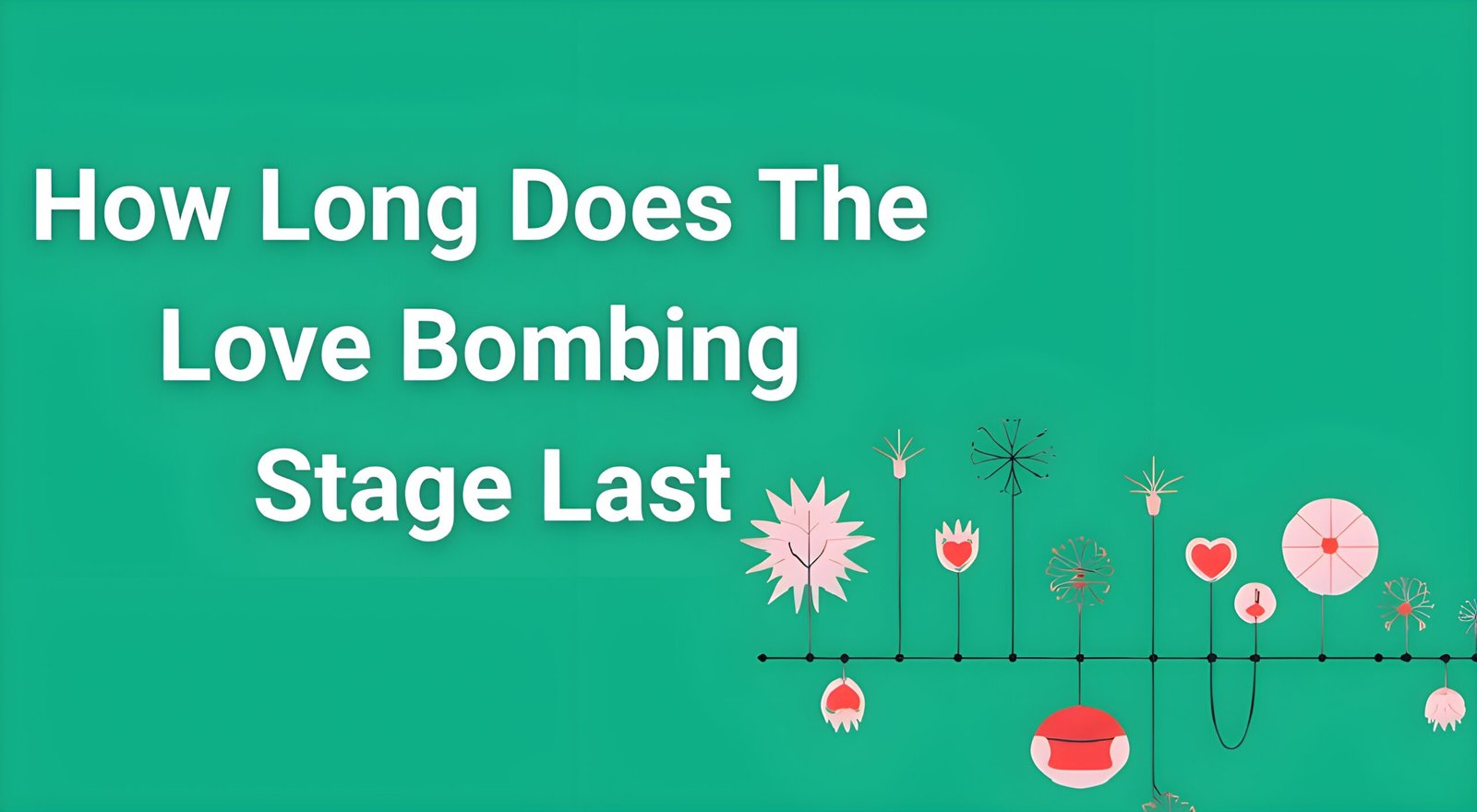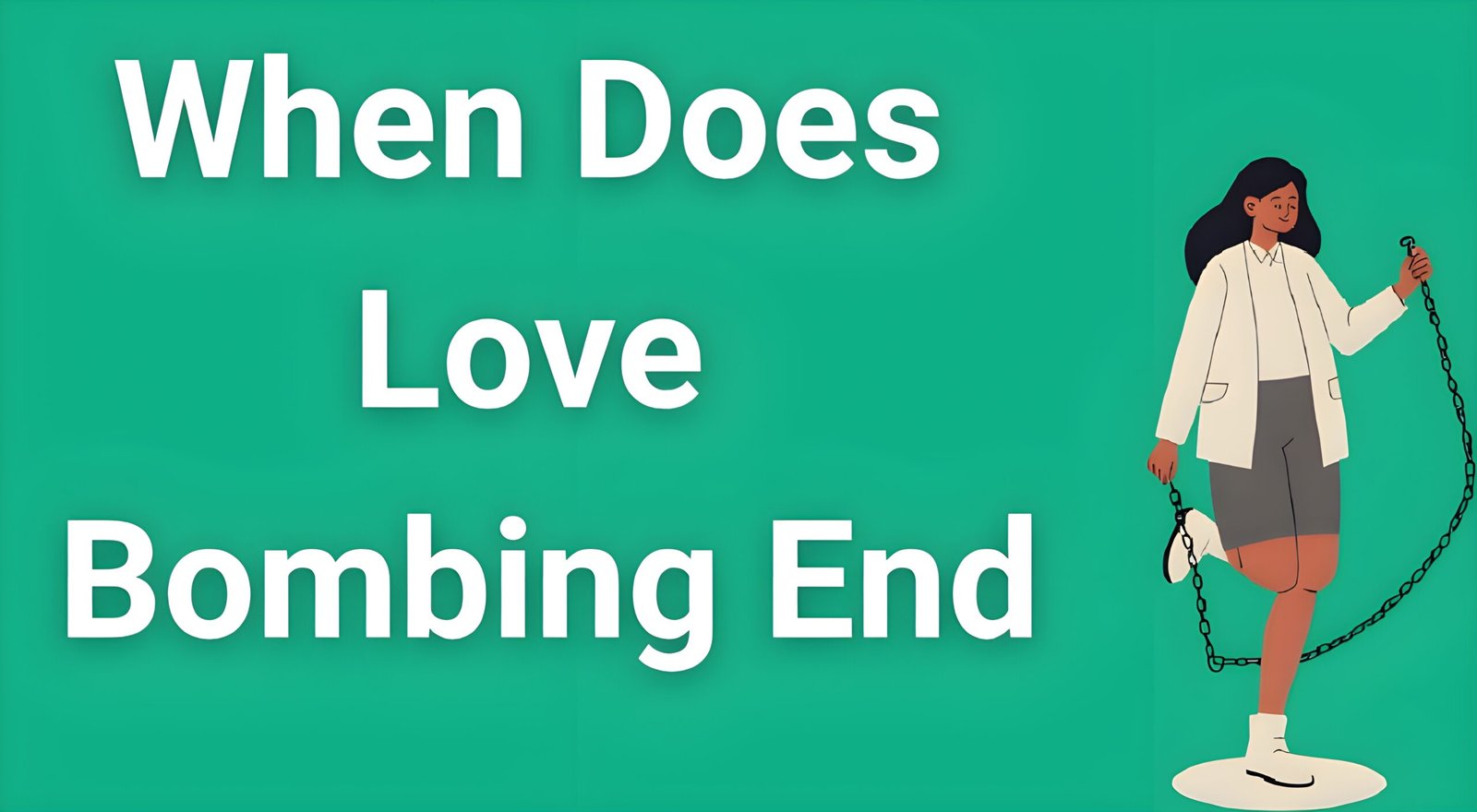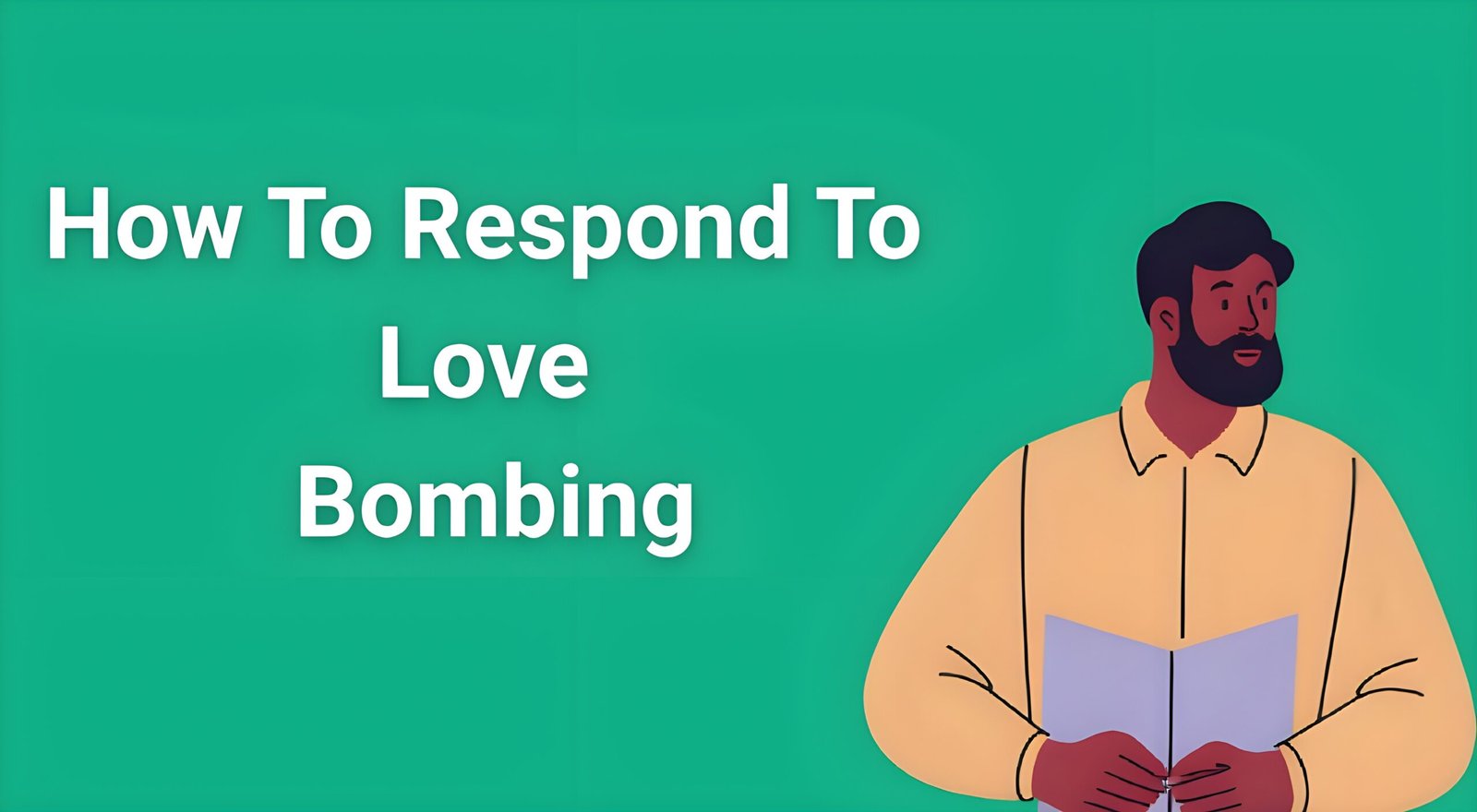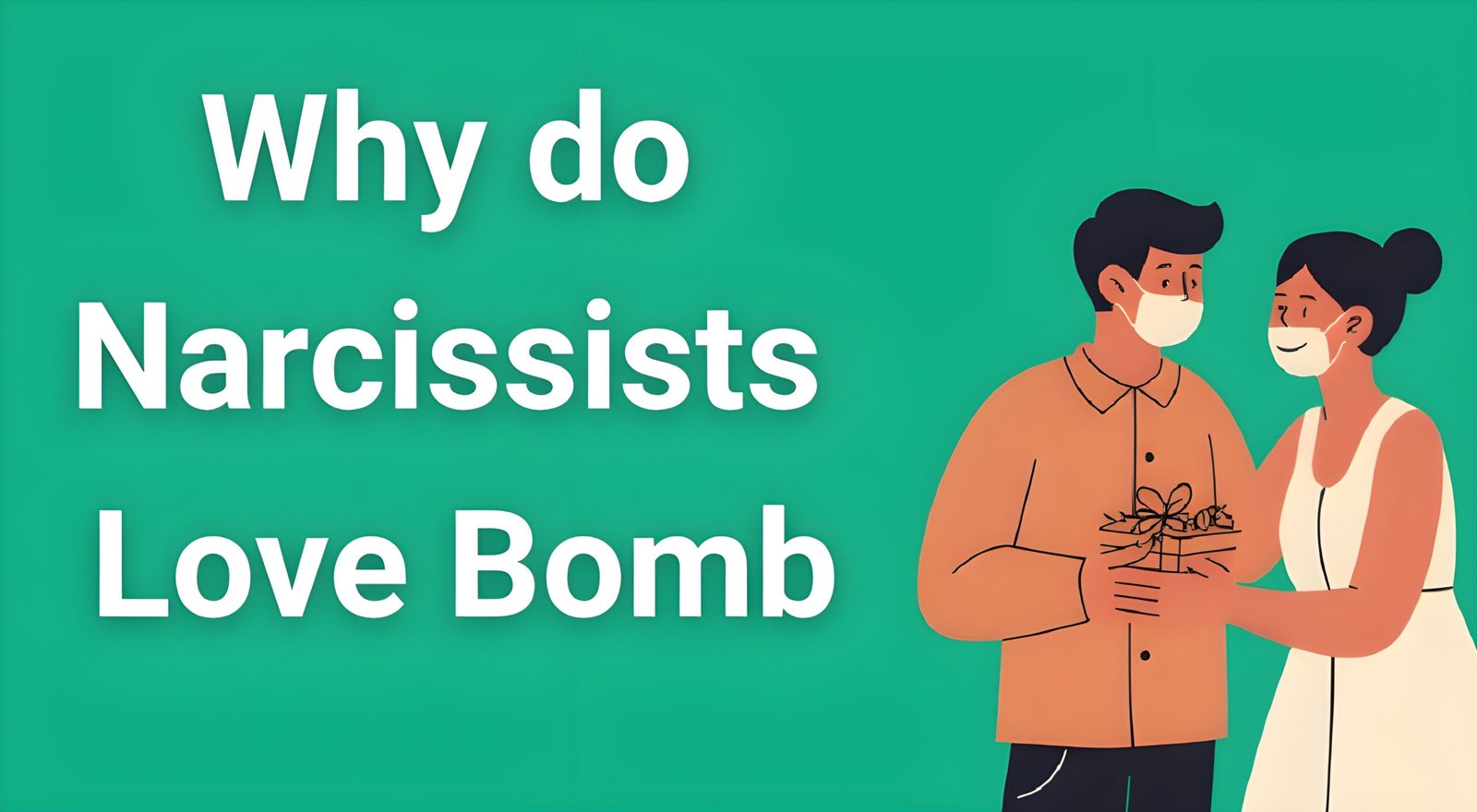That overwhelming feeling when someone showers you with attention, gifts, and declarations of love from day one can feel like a fairytale dream come true. But if you’re asking yourself “is he love bombing me,” your intuition might be trying to protect you from something far more dangerous than a whirlwind romance.
- What Exactly Is Love Bombing?
- The Psychology Behind Love Bombing Tactics
- 12 Red Flags That He’s Love Bombing You
- The Dangerous Cycle: What Happens After Love Bombing
- Love Bombing vs. Genuine Romantic Interest: Key Differences
- How to Protect Yourself from Love Bombing
- When Love Bombing Escalates to Abuse
- Getting Professional Help: When to Seek Support
- Building Healthy Relationships After Love Bombing
- FAQ Section
- Your Next Steps: Trusting Yourself and Moving Forward
Love bombing isn’t the romantic gesture it appears to be on the surface. It’s a calculated manipulation tactic designed to sweep you off your feet so quickly that you don’t notice the red flags waving right in front of you. Understanding the difference between genuine affection and love bombing could save you from months or years of emotional manipulation and abuse.
What Exactly Is Love Bombing?
Love bombing is a form of psychological manipulation where someone overwhelms you with excessive attention, affection, gifts, and flattery in the early stages of a relationship. This intense display of “love” serves one primary purpose: to gain control over you by creating an emotional dependency that makes it harder to leave when their true nature emerges.
Unlike genuine romantic interest that develops naturally over time, love bombing feels artificially intense and moves at breakneck speed. The love bomber isn’t falling for you as a person – they’re falling for the control they can exert over you.
The term actually originated in the 1970s when members of the Unification Church (the Moonies) used this technique to recruit new members. Cult leaders recognized that overwhelming people with affection and attention could break down their psychological defenses, making them more susceptible to manipulation and control.
The Psychology Behind Love Bombing Tactics
Understanding why someone would love bomb you requires looking at the psychology of manipulative personalities. Love bombers often exhibit narcissistic traits or have narcissistic personality disorder (NPD). They don’t experience empathy the way healthy individuals do, which allows them to view others as objects to be used rather than people to be loved.
For the narcissist, love bombing serves several psychological functions. It feeds their need for admiration and control while simultaneously creating what psychologists call “trauma bonding” – an unhealthy attachment that forms between an abuser and their victim through cycles of intense affection followed by emotional withdrawal or abuse.
The neurological impact on victims is profound. Love bombing triggers massive releases of dopamine, oxytocin, and other feel-good chemicals in your brain, creating an addictive-like response to the love bomber’s attention. When they inevitably withdraw that attention, your brain craves it like a drug, making it extremely difficult to break free from the relationship.
12 Red Flags That He’s Love Bombing You
1. The Relationship Moves at Lightning Speed
If he’s talking about soul mates, moving in together, or your future children after just a few dates, this is a major red flag. Healthy relationships take time to develop genuine intimacy. Love bombers push for rapid commitment because they want to secure your emotional investment before you have time to see their true character.
Pay attention if he seems frustrated when you want to take things slower or suggests that wanting time means you don’t really care about him. This pressure tactic is designed to make you feel guilty for having healthy boundaries.
2. He Showers You with Extravagant Gifts
While thoughtful gifts can be lovely, love bombing gifts are typically over-the-top, expensive, or completely disproportionate to how long you’ve known each other. He might buy you jewelry after the second date, surprise you with expensive trips, or insist on paying for everything even when you’ve expressed discomfort.
These gifts aren’t given out of genuine care – they’re investments designed to make you feel indebted to him. Notice if he later reminds you of all the money he’s spent on you or uses his generosity to guilt you into staying when problems arise.
3. Constant Communication and Attention Demands
Love bombers often bombard you with texts, calls, and messages throughout the day. While it might feel flattering initially, this behavior is designed to monopolize your time and attention. He might get upset if you don’t respond immediately or question why you were too busy to answer.
This constant contact serves multiple manipulative purposes: it speeds up intimacy artificially, monitors your activities, and gradually isolates you from other relationships that might interfere with his control over you.
4. Over-the-Top Compliments That Feel Hollow
Love bombers tend to use excessive flattery that focuses on surface-level attributes or feels generic enough to apply to anyone. He might call you his “perfect angel” or claim he’s “never met anyone like you” before really knowing who you are as a person.
Genuine compliments come from actually knowing and appreciating specific things about you. Love bombing compliments are designed to make you feel special without requiring the love bomber to invest time in actually understanding your unique qualities.
5. He Mirrors Your Interests and Values Perfectly
If he seems to share all your hobbies, beliefs, and preferences with uncanny precision, be suspicious. Love bombers are skilled at becoming whoever they think you want them to be. They’ll claim to love your favorite music, share your spiritual beliefs, or suddenly develop interests in your hobbies.
This mirroring behavior is a manipulation tactic called “future faking” – he’s creating a false persona designed to make you believe you’ve found your perfect match. The real person will emerge later, often dramatically different from the character he initially presented.
6. He Pushes Past Your Boundaries
Healthy people respect your boundaries and don’t pressure you to change them. Love bombers, however, see boundaries as obstacles to overcome. He might show up uninvited, continue calling after you’ve asked for space, or pressure you into activities you’ve said you’re not ready for.
When you try to set limits, he might respond with hurt feelings, accusations that you don’t trust him, or claims that boundaries aren’t necessary between people who “really love each other.” This boundary-pushing behavior is testing how much control he can exert over you.
7. Isolation Tactics Disguised as Love
He might express jealousy about your friends and family, claiming he just wants to spend all his time with you because he loves you so much. Love bombers often create conflict with your support network or schedule activities that consistently conflict with your other relationships.
This isolation isn’t romantic – it’s strategic. By cutting you off from people who might notice red flags or offer perspective, he reduces the likelihood that you’ll recognize the manipulation or have support when you need to leave.
8. He Can’t Handle Criticism or Disagreement
When you express any dissatisfaction with his behavior or disagree with him about something, notice his reaction. Love bombers often respond to criticism with anger, sulking, or turning the situation around to make you feel guilty for bringing up legitimate concerns.
He might say things like “After everything I’ve done for you, this is how you treat me?” or claim that your concerns prove you don’t appreciate him. This reaction reveals that his attention isn’t about loving you – it’s about maintaining control and admiration.
9. Your Friends and Family Express Concerns
If multiple people in your life are expressing worry about how quickly the relationship is moving or how he treats you, listen to them. Love bombers often charm others initially, but perceptive friends and family members can spot the artificial intensity and controlling behaviors.
Don’t dismiss these concerns as jealousy or misunderstanding. People who care about you can often see manipulation more clearly because they’re not caught up in the emotional whirlwind you’re experiencing.
10. He Has a Pattern of Intense, Short-Lived Relationships
Pay attention to how he talks about his relationship history. Love bombers often have a trail of relationships that started intensely and ended badly. He might describe all his exes as “crazy” or claim they “couldn’t handle his love.”
This pattern suggests he hasn’t learned to form healthy, lasting connections but instead repeats the same manipulative cycle with each new partner. You’re likely not the first person he’s love bombed, and you won’t be the last unless you recognize the pattern.
11. He Makes You Feel Like You’re Walking on Eggshells
Despite all the attention and affection, you might notice that you’re starting to feel anxious about his reactions. Love bombers often create an environment where you feel like you need to be careful not to upset them or do anything that might cause them to withdraw their attention.
This anxiety is your nervous system recognizing that something isn’t right, even when your logical mind is telling you that someone who showers you with love couldn’t possibly be harmful.
12. The Attention Comes with Strings Attached
As the relationship progresses, you might notice that his generosity and attention aren’t as unconditional as they initially seemed. He might expect sexual favors in return for gifts, demand your constant availability in exchange for his attention, or use his kindness as leverage to get what he wants.
This transactional approach to affection reveals that the love bombing was never about making you happy – it was about creating obligations that he can cash in later.
The Dangerous Cycle: What Happens After Love Bombing
Understanding that love bombing is just the first phase of a larger abuse cycle is crucial for protecting yourself. The cycle typically follows three distinct phases:
The Idealization Phase is where love bombing occurs. You’re placed on a pedestal and made to feel like the most special person in the world. This phase can last weeks or months, depending on how quickly the love bomber feels they’ve secured your emotional investment.
The Devaluation Phase begins once the love bomber feels confident you won’t leave easily. The intense attention and affection start to fade, replaced by criticism, emotional withdrawal, gaslighting, and other forms of psychological manipulation. The person who once couldn’t get enough of you suddenly finds fault with everything you do.
The Discard Phase happens when the love bomber either finds a new source of narcissistic supply or decides you’re no longer useful to them. They might ghost you completely, start openly dating someone else, or become so cruel that you’re forced to leave the relationship yourself.
Many love bombers will attempt to restart this cycle through a process called “hoovering” – they’ll reappear with apologies, promises to change, and renewed love bombing to draw you back in. This isn’t genuine growth or regret; it’s simply another manipulation tactic.
Love Bombing vs. Genuine Romantic Interest: Key Differences
Learning to distinguish between authentic affection and love bombing can protect you from falling into this manipulative trap. Genuine romantic interest develops gradually and feels sustainable, while love bombing feels intense but artificial.
Authentic romantic interest respects your pace and boundaries. Someone who genuinely cares about you will want you to feel comfortable and won’t pressure you to move faster than you’re ready for. They’ll be interested in learning about you as a person, not just reflecting back what they think you want to hear.
Real love can handle imperfection and disagreement. A healthy partner won’t withdraw affection when you express concerns or have different opinions. They’ll work through conflicts constructively rather than punishing you for not being the perfect, idealized version they initially created.
Genuine affection enhances your life rather than consuming it. A healthy relationship will encourage your other friendships and interests rather than creating conflict with them. You’ll feel more like yourself, not less.
How to Protect Yourself from Love Bombing
If you suspect you’re being love bombed, there are several strategies you can use to protect yourself and assess the situation more clearly:
Trust your instincts. If something feels too intense or too good to be true, pay attention to that feeling. Your intuition often picks up on manipulation before your logical mind can identify specific red flags.
Maintain your boundaries regardless of how he reacts. A healthy person will respect your limits even if they’re disappointed. Someone who pressures you to change your boundaries or makes you feel guilty for having them is showing you that they don’t respect your autonomy.
Keep your support network involved. Don’t allow the relationship to consume all your time and energy. Continue nurturing your friendships and family relationships, and listen when they express concerns about your new partner.
Take things slowly despite any pressure to speed up the relationship. Genuine love can wait for you to feel comfortable. If he becomes angry or manipulative when you want to maintain a reasonable pace, you have your answer about his true intentions.
Pay attention to his actions over time rather than getting swept up in romantic words and gestures. Consistency between words and actions over weeks and months is a much better indicator of someone’s character than grand gestures in the first few dates.
When Love Bombing Escalates to Abuse
For many people asking “is he love bombing me,” the concern goes beyond manipulation to questions of safety. Love bombing often serves as the foundation for more severe forms of abuse, including emotional, psychological, and sometimes physical violence.
If the love bombing has progressed to the devaluation phase, you might be experiencing gaslighting (making you question your own reality), emotional abuse (constant criticism, name-calling, threats), financial control (monitoring your spending, preventing you from working), or isolation from support systems.
The trauma bond created through love bombing can make it extremely difficult to leave even when the abuse becomes obvious. Your brain has been conditioned to crave the intense highs of the love bombing phase, making you more likely to forgive abuse in hopes of getting that feeling back.
If you’re experiencing abuse, please know that it’s not your fault and help is available. The National Domestic Violence Hotline (1-800-799-7233) provides confidential support 24/7. You deserve relationships that feel safe, respectful, and genuinely loving.
Getting Professional Help: When to Seek Support
Recovering from love bombing and potential narcissistic abuse often requires professional support. The psychological impact can be significant, affecting your ability to trust your own perceptions and form healthy relationships in the future.
Consider seeking help if you’re experiencing anxiety, depression, confusion about what happened in your relationship, difficulty trusting your own judgment, or problems forming new relationships. A therapist experienced in narcissistic abuse recovery can help you understand what happened, heal from the trauma, and develop strategies for recognizing healthy relationships in the future.
If you’re still in the relationship and questioning whether what you’re experiencing is normal, getting an outside perspective can be invaluable. Sometimes we need someone with expertise to help us see clearly when we’re caught in the middle of manipulation.
There are specialized resources available for people dealing with narcissistic abuse and love bombing. A Narcissistic Abuse Clarity Report can provide personalized analysis of your specific situation, helping you understand exactly what you’re dealing with and what steps to take next. This type of expert assessment can be particularly valuable when you’re feeling confused or questioning your own perceptions.
For those working to break free from the trauma bond created by love bombing, structured recovery programs can be incredibly helpful. A 30-Day Trauma Bond Recovery Workbook uses neuroscience-based techniques to help rewire your brain’s response to the love bomber, making it easier to maintain no contact and heal from the addiction-like attachment.
If you’re currently stuck in a situation where leaving immediately isn’t possible – perhaps due to financial constraints, children, or other circumstances – there are specific strategies for protecting your mental health while you plan your exit. Resources focused on how to survive when you can’t leave yet can provide crucial coping mechanisms and safety planning for these complex situations.
Building Healthy Relationships After Love Bombing
If you’ve experienced love bombing, you might feel scared about dating again or worry that you won’t be able to recognize healthy love when you find it. This is a normal response to trauma, but healing is absolutely possible.
Healthy relationships feel fundamentally different from love bombing. They develop gradually, with both people getting to know each other’s authentic selves over time. There’s no pressure to commit quickly or give up your independence. Conflicts are handled with respect and communication rather than manipulation or emotional punishment.
Learning to trust your instincts again is a crucial part of recovery. Love bombing works partly because it overwhelms your natural caution and boundaries. As you heal, you’ll redevelop the ability to notice when something doesn’t feel right and trust that feeling enough to act on it.
Take time to reconnect with yourself and your own interests outside of romantic relationships. Love bombers often target people who are going through difficult times or feeling particularly vulnerable. Building a strong sense of self and a robust support network makes you less susceptible to manipulation in the future.
FAQ Section
Q: How long does love bombing usually last?
A: Love bombing typically lasts anywhere from a few weeks to several months, depending on how quickly the manipulator feels they’ve secured your emotional investment. Some experienced love bombers can maintain the facade longer if they sense you’re still not fully committed.
Q: Can someone love bomb unintentionally?
A: While some people might be naturally very expressive or enthusiastic in early relationships, true love bombing involves a deliberate pattern of manipulation designed to gain control. Healthy enthusiasm respects boundaries and doesn’t come with hidden agendas.
Q: Is love bombing always a sign of narcissistic personality disorder?
A: Not necessarily. While love bombing is commonly associated with NPD, it can also be used by people with other personality disorders or simply those who have learned manipulative behaviors. The key is recognizing the pattern regardless of the underlying cause.
Q: What should I do if I realize I’ve been love bombed?
: If you’re still in the relationship, prioritize your safety and consider seeking professional help to create an exit plan. If the relationship has ended, focus on healing from the trauma bond and learning to recognize healthy relationship patterns for the future.
Q: Can love bombers change?
A: While people can change with intensive therapy and genuine commitment to growth, love bombers rarely acknowledge their behavior as problematic. Most continue the same patterns with new partners. It’s important not to stay in a harmful relationship hoping someone will change.
Q: How can I help a friend who I think is being love bombed?
A: Express your concerns gently without attacking their partner directly. Ask open-ended questions that help them reflect on how they feel in the relationship. Most importantly, maintain the friendship and let them know you’ll be there when they need support.
Your Next Steps: Trusting Yourself and Moving Forward
If you found yourself nodding along to many of these red flags, trust that recognition. Your question “is he love bombing me” likely came from a place of intuitive wisdom that something wasn’t quite right, even if you couldn’t initially put your finger on what it was.
Love bombing can feel incredibly convincing in the moment, especially if you’re going through a difficult time or haven’t experienced this type of manipulation before. Don’t blame yourself for being drawn in by someone who was deliberately trying to deceive you. Recognizing love bombing for what it is – a manipulation tactic rather than genuine love – is the first step toward protecting yourself and healing.
Remember that healthy love feels safe, not overwhelming. It enhances your sense of self rather than erasing it. It respects your boundaries rather than constantly testing them. Most importantly, it gives you space to be authentically yourself rather than pressuring you to become someone else’s fantasy.
If you’re still feeling confused about your situation or need support as you navigate these challenging dynamics, remember that help is available. Whether through professional therapy, specialized resources for narcissistic abuse recovery, or trusted friends and family members, you don’t have to figure this out alone.
Your instincts brought you to ask this question in the first place. Trust them to guide you toward relationships that feel genuinely loving, safe, and sustainable. You deserve nothing less than authentic love that honors who you truly are.






